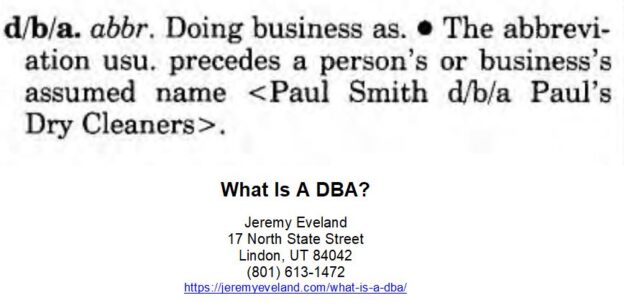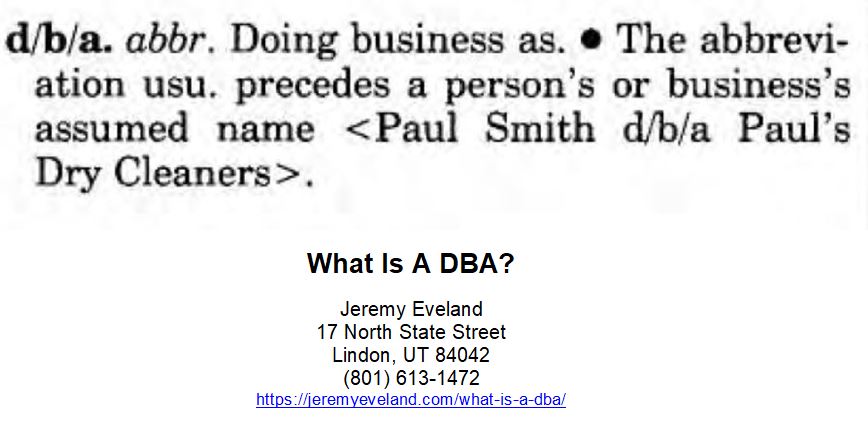Business Lawyer Payson Utah
As a business owner in Payson, Utah, you understand the importance of having experienced and reliable partners in your corner. One such ally that can play a pivotal role in your success is an astute business lawyer. From contract drafting to litigation representation, this legal professional's expertise could be the key differentiator between stagnancy and growth for your venture. An adept business lawyer doesn't just react to legal difficulties; they anticipate potential issues and help you navigate them proactively, allowing you to focus on what matters most – running your business.
In Payson's dynamic commercial environment, understanding the local laws is crucial. However, it's not enough to merely have a superficial grasp of these regulations; you need someone who has immersed themselves in this landscape – a knowledgeable Business Lawyer with roots right here in Payson. This professional can help ensure compliance with local laws while also safeguarding your interests against unexpected legal pitfalls. With their guidance, you're better equipped to make informed decisions that fuel sustainable growth for your enterprise. So let's delve deeper into how engaging a proficient Business Lawyer in Payson can benefit your business endeavors.
Key Takeaways
- Having an experienced and reliable business lawyer in Payson, Utah is important for ensuring compliance with local laws and regulations.
- Business lawyers play a crucial role in contract drafting, review, and negotiation, helping protect the interests of businesses and avoid potential legal issues.
- Business lawyers in Payson can provide assistance in various areas, including understanding zoning laws, complying with health and safety standards, navigating licensing procedures, deciphering tax codes, and interpreting employment regulations.
- Business lawyers can be valuable partners in business growth, offering sound legal advice, guidance on establishing the right business entity, and assistance in managing mergers and acquisitions.
Understanding the Role of a Business Lawyer
You may not fully grasp the crucial role a business lawyer plays in safeguarding your enterprise, and that's where our expert Business Lawyer in Payson, Utah steps in to illuminate their significance. A proficient business lawyer is instrumental in ensuring that your firm remains compliant with Utah State Bar regulations, as well as federal laws. This legal professional navigates complex issues of business law on your behalf, allowing you to focus on other essential aspects of running your company. Essentially, understanding the role of a business lawyer helps you appreciate how they can help mitigate risks and protect the interests of your organization.
A high-quality business lawyer offers sound legal advice based on years of experience handling various cases related to commercial transactions, contracts, mergers or acquisitions among others. They possess a comprehensive understanding of laws governing businesses and use this knowledge strategically to provide counsel tailored specifically for your operation. When you engage a reputable law firm like ours based in Payson, Utah, you are investing in expertise that can save you from costly lawsuits or detrimental legal blunders down the line.
Moreover, business lawyers offer invaluable assistance during dispute resolution processes. They represent your interests during negotiations or court proceedings when conflicts arise with employees, clients or competitors. Their adept negotiation skills could potentially save you time and money by reaching amicable solutions swiftly without escalating matters unnecessarily into expensive litigation procedures.
Beyond offering advice and representation during disputes however; part of our Business Lawyer's proactive approach includes helping lay solid foundations for a successful venture right from its inception. We're talking about assisting with establishing an appropriate structure for your enterprise— whether it's deciding between forming an LLC or corporation — which will greatly influence aspects like taxation and liability exposure moving forward. Next comes addressing essential elements such as drafting robust contracts which we'll delve deeper into within the upcoming section about 'establishing your business entity'.
Establishing Your Business Entity
Setting up your company's legal structure isn't a walk in the park – it's akin to navigating a labyrinth without a map. The process is filled with complex terminologies, daunting paperwork, and incessant legal implications that could easily overwhelm anyone without proper guidance. This is where the role of an experienced business lawyer becomes crucial. A competent business lawyer in Payson Utah can provide essential legal advice on choosing the right type of business entity for your Utah County business.
Establishing your business entity involves making critical decisions that will significantly impact how you operate and maintain your venture. Here are four key aspects to consider:
- Type of Business Entity: From sole proprietorships to corporations or limited liability companies (LLCs), each has its own set of rules, tax implications, and liabilities.
- Legal Obligations: Every type requires adherence to different regulatory standards – some more strict than others.
- Protection against Liability: Depending on the structure chosen, owners might be personally liable for debts and lawsuits against their company.
- Taxation: It's imperative to understand how different entities are taxed differently by federal and state laws.
Running a successful Utah County business also entails understanding these aspects inside-out. You need someone who knows all about local ordinances, laws governing businesses—someone like an experienced business lawyer from Payson Utah who specializes in these areas providing comprehensive legal services tailored to meet your specific needs.
The importance of having sound legal advice when establishing your new company cannot be overstated. It could mean the difference between shielding yourself from personal liability or falling victim to costly litigation down the line. Such foresight can only come from working closely with a seasoned professional well versed in such matters.
Once you've established your desired business entity with help from our knowledgeable team at Payson Utah's top law firm, we'll then shift our focus towards drafting thorough contracts and agreements – another critical aspect integral to protecting both you as an owner and your blossoming enterprise moving forward.
Drafting Contracts and Agreements
Navigating the intricate maze of drafting contracts and agreements can feel like walking a tightrope without a safety net, but there's no need to worry – expert help is on hand. When you hire a seasoned business lawyer in Payson, Utah, you're securing an ally who understands complex legal jargon and knows how to craft solid contracts that protect your interests. Whether it's employment agreements, vendor contracts, or partnership deeds, having an attorney by your side ensures that these documents are sound from both a legal and business standpoint.
Drafting contracts and agreements is not just about putting words on paper; it involves an understanding of law intricacies and potential pitfalls related to your specific type of business. A competent attorney dives deep into every clause of the contract to ward off any future legal issues. They ensure that all terms are clearly defined, obligations are outlined succinctly, and penalties for non-compliance are specified adequately. This detailed approach makes sure each party knows exactly what they are signing up for thereby preventing misunderstandings down the line.
With businesses operations growing increasingly complex in today's world, having access to a knowledgeable business lawyer in Payson Utah becomes even more critical. Your attorney will adapt as your company evolves – anticipating future needs and updating agreements accordingly. They will also review existing contracts with vendors or clients to identify areas where you may be at risk legally which could potentially save significant hardship and financial loss down the road.
Having tackled drafting contracts and agreements confidently with the assistance of a skilled attorney takes some weight off your shoulders but navigating through local laws can still pose challenges which vary greatly from one jurisdiction to another. It's important then for businesses based in Payson Utah or looking into expanding here to have a solid grasp over these local laws – something our experienced attorneys can assist with seamlessly as we progress further into ensuring all aspects of your business remain within legal bounds.
Navigating Local Laws and Regulations
Getting a grip on local laws and regulations can seem like an uphill battle, but it's one you don't have to fight alone. With the support of a business lawyer in Payson, Utah, navigating local laws and regulations becomes less daunting. As specialists in this field, these legal professionals understand the intricacies of the Utah County legal system, providing critical guidance to ensure your business remains compliant with all relevant policies and ordinances.
Operating within the bounds of local laws is vital for every business. Failure to do so can result in hefty fines or even closure. However, understanding these laws isn't always straightforward. Here are some areas where a reputable business lawyer in Payson can provide invaluable assistance:
- Understanding zoning laws: These regulate where certain types of businesses can operate.
- Complying with health and safety standards: Ensuring your work environment meets mandated requirements.
- Navigating licensing procedures: Helping you obtain necessary licenses for operating your enterprise legally.
- Deciphering tax codes: Assisting you in understanding tax obligations as per Utah County law.
- Interpreting employment regulations: Making sure your hiring practices align with state labor rules.
Business lawyers offer more than just guidance; they are experienced attorneys at law who can represent your interests during disputes or court proceedings. They help protect not only from potential legal pitfalls but also safeguard your financial interests by ensuring contracts are fair and equitable. Additionally, if an issue arises involving an employee or another company, having knowledgeable representation on hand could be pivotal for maintaining operations while resolving conflicts.
When it comes to managing growth through mergers and acquisitions, having the right attorney is key too – not just for interpreting complex contracts but also for helping navigate regulatory requirements that come with such transactions. Stay tuned as we delve deeper into how our Payson-based legal experts assist businesses during their expansion phase without any missteps along the way.
Handling Mergers and Acquisitions
When your entrepreneurial dream takes flight and expansion becomes the name of the game, the labyrinthine world of mergers and acquisitions can feel like a stormy sea to navigate. The complexity involved in merging with another business or acquiring one is not something you should tackle alone. This is where engaging a seasoned business lawyer in Payson, Utah comes into play. They're equipped with the knowledge and experience to guide you through this process, helping you avoid potential legal pitfalls while ensuring all necessary procedures are properly followed.
Understanding how mergers and acquisitions work is critical for any entrepreneur considering growth through these channels. Navigating this terrain requires deep insights into corporate law, tax law, securities law, accounting, intellectual property rights; just to mention a few. Your chosen business lawyer will provide sound legal advice on each step of your merger or acquisition process – from due diligence to contract drafting and negotiation – making sure that your interests are always protected.
Moreover, a competent business lawyer can advise on the most suitable business structure for your merged or acquired entity. Whether it's best to opt for an LLC, corporation or partnership could significantly affect your company's future operations as well as its tax implications. In Payson, Utah there are specific state laws regarding different types of business structures that should be taken into account during mergers and acquisitions.
As much as merging with or acquiring a company can propel your venture forward exponentially, it also has its share of risks and disputes which if poorly handled could lead to significant losses. Having an expert in your corner reduces these risks significantly by meticulously examining every aspect of any deal before it's finalized – ensuring everything aligns perfectly with your objectives without contravening any laws. As we sail further into the vast ocean of business law complexities let's explore how having professional legal representation can help resolve disputes through smart negotiations without resorting to litigation.
Resolving Disputes through Negotiation
After ensuring your company's successful merger or acquisition, it's pivotal to maintain a proactive approach towards potential business conflicts. That's where our expert business lawyer in Payson, Utah can play a crucial role. They specialize not only in navigating the complexities of mergers and acquisitions but also in resolving disputes through negotiation. Their knowledge and experience will help you address any legal matters before they escalate into bigger problems.
- Expertise in Dispute Resolution: Our business lawyer is highly skilled at dispute resolution, employing comprehensive strategies that are tailored to your unique situation. They understand how to balance aggressiveness with diplomacy to ensure productive negotiations.
- Proactive Lawsuit Avoidance: By addressing issues early on, this lawsuit attorney can help prevent costly legal battles down the line. This proactive approach can save you both time and money.
- Ensuring Fair Negotiations: When resolving disputes through negotiation, it's essential for each party to feel heard and respected so that mutually beneficial solutions can be reached. Our Payson-based lawyer ensures that all negotiations are fair and transparent.
With their adept understanding of complex legal matters, our Business Lawyer in Payson, Utah can transform even the most challenging disputes into opportunities for growth and collaboration via effective negotiation tactics. Remember: hiring the right business lawyer isn't just about solving problems—it's about preventing them from happening in the first place.
But sometimes despite everyone's best efforts, disagreements might escalate beyond mere discussions or mediation sessions; situations may arise where litigation becomes inevitable. It is during such times when having a trusted legal partner becomes indispensable – capable of protecting your interests as we transition into the arena of corporate lawsuits and litigation fights.
Protecting Your Interests in Litigation
It's never easy finding yourself in the midst of a corporate lawsuit, but rest assured, our legal expert is there to shield your interests and fight for justice. This is where a business lawyer from Payson Utah can make all the difference by protecting your interests in litigation. These lawyers are well versed in the nuances of business law and have extensive experience handling complex cases. They understand that every situation is unique and requires a tailored approach to ensure you receive the best possible outcome.
Our skilled lawyers offer an array of services designed to meet your legal needs during litigation proceedings. From drafting persuasive arguments to presenting compelling evidence in court, they employ strategic tactics aimed at achieving favorable results for their clients. These attorneys are not only adept at navigating intricate laws, but also excel at negotiating with opposing parties to resolve disputes amicably whenever possible.
One key aspect of protecting your interests in litigation involves understanding how potential outcomes can impact your business operations long-term. Our experienced lawyers take time explaining these implications so you're fully aware of what's at stake before making any decisions. They don't just focus on winning lawsuits; they aim to help you maintain operational stability while minimizing disruptions caused by legal issues.
Navigating through litigation successfully requires not only legal expertise but also foresight about potential impacts on your business future. With our team's guidance, you will be able to make informed choices that align with both immediate requirements and long-term goals—ensuring continued growth despite challenges faced along the way. Up next: how this expert support can empower you when it comes to making informed decisions for your business.
Making Informed Decisions for Your Business
Don't you want the power of informed decision-making at your fingertips? With expert guidance from our seasoned legal professionals, you can effectively steer clear of potential pitfalls and keep your venture sailing smoothly, even in stormy waters reminiscent of the Titanic's fateful voyage. Our business lawyer in Payson, Utah is well-versed in providing invaluable advice that will help you to make informed decisions for your business. From navigating corporate formalities to identifying potential areas of risk, we've got you covered.
Our experienced Layton business attorney offers consultation services designed to equip you with the knowledge and insight necessary for sound decision-making. We believe that an empowered entrepreneur is a successful one. That's why we go beyond merely offering legal services; we aim to be partners who contribute significantly to your success story.
| Services Provided | Importance | Benefits |
|---|---|---|
| Corporate Formality Guidance | Helps maintain legal protection by ensuring compliance with necessary regulations. | Avoidance of penalties and potential lawsuits. |
| Risk Identification & Management Consultation | Foreseeing possible complications can help create effective strategies. | Proactive measures save time, money and protect reputation. |
| Informed Decision-Making Advice | Knowledgeable decisions minimize mistakes and maximize opportunities. | Enhances overall business growth and sustainability |
As part of our commitment to supporting local businesses, our attorneys understand that each enterprise has unique needs. We tailor our approach accordingly, offering bespoke solutions instead of a one-size-fits-all strategy. By working closely with us, making informed decisions for your business becomes easier than ever before – it's like having a co-pilot on board guiding your ship through tumultuous seas towards safe harbor! So when it comes down to protecting what matters most -your dream venture-, why leave anything to chance? Reach out today for a consultation with our dedicated team at Payson Utah Business Lawyer office.
Frequently Asked Questions
What are the costs associated with hiring a business lawyer in Payson, Utah?
You may be wondering about the costs associated with hiring a business lawyer in Payson, Utah. The cost can vary greatly depending on the complexity of your legal needs and the experience level of the attorney. Typically, you'll find lawyers charging either a flat fee for specific services like drafting contracts or forming a corporation, or an hourly rate for more complex matters that require ongoing advice and representation. Hourly rates can range from $200 to $500 per hour, but it's important to remember that this is just an average and rates can fluctuate based on various factors. Some lawyers also offer retainer agreements where you pay upfront for a certain amount of their time each month. Always request a clear breakdown of fees before proceeding so you're not caught off guard by any unexpected costs.
How can a business lawyer assist with business succession planning?
A business lawyer can be an invaluable asset in your business succession planning. They'll guide you through every step of the process, ensuring all legal aspects are handled accurately and efficiently. Your lawyer will help you define your objectives, identify potential successors, and develop a transfer strategy. With their expertise, they can draft necessary legal documents such as buy-sell agreements or family limited partnerships to secure your plan's success. Moreover, they'll assist in minimizing tax liabilities that come with transferring ownership. So, engaging a business lawyer in your succession planning not only ensures a smooth transition but also protects the longevity of your enterprise.
Can a business lawyer in Payson, Utah help with intellectual property issues, such as trademarks and copyright?
Absolutely, a business lawyer can certainly assist with intellectual property issues such as trademarks and copyrights. They're well-versed in the intricate laws that govern these areas, enabling them to guide you through the processes of obtaining, protecting, and enforcing your intellectual property rights. Whether it's helping you register a trademark or advising on copyright infringements, they'll work diligently to ensure your business assets are secure. This knowledge extends to dealing with disputes too; should any arise, they can construct robust legal strategies to defend your interests effectively. So yes, hiring a business lawyer can be invaluable when navigating the complexities of intellectual property law.
What is the process to hire a business lawyer in Payson, Utah?
To hire a business lawyer in Payson, Utah, you'll first need to identify your specific needs and what you want the lawyer to accomplish for your business. Once this is clear, conduct detailed research on potential lawyers or law firms specializing in business law in Payson area. Check their professional background, experience handling similar cases, and client testimonials. Upon shortlisting suitable candidates, schedule consultations to discuss your case specifics and understand their approach towards it. During these meetings, don't forget to ask about their fees structure and billing practices. Once you're satisfied with a particular lawyer's expertise and proposed approach to your legal needs, proceed by signing an engagement letter that outlines the terms of representation thus formalizing your relationship with them as your counsel.
Does a business lawyer provide services related to employee or labor laws?
Absolutely, a business lawyer does provide services related to employee or labor laws. You can rely on them for guidance about employment contracts, non-disclosure agreements, and even disputes with your employees. They are knowledgeable in areas such as workers' compensation, discrimination laws, and wrongful termination claims. It's not just about knowing the law; it's about applying it effectively to protect your business interests while ensuring compliance with all legal obligations. So whether you're dealing with a complex labor dispute or simply want to make sure your hiring practices are up to par legally, having a business lawyer by your side can be an invaluable asset.
Areas We Serve
We serve individuals and businesses in the following locations:
Salt Lake City Utah
West Valley City Utah
Provo Utah
West Jordan Utah
Orem Utah
Sandy Utah
Ogden Utah
St. George Utah
Layton Utah
South Jordan Utah
Lehi Utah
Millcreek Utah
Taylorsville Utah
Logan Utah
Murray Utah
Draper Utah
Bountiful Utah
Riverton Utah
Herriman Utah
Spanish Fork Utah
Roy Utah
Pleasant Grove Utah
Kearns Utah
Tooele Utah
Cottonwood Heights Utah
Midvale Utah
Springville Utah
Eagle Mountain Utah
Cedar City Utah
Kaysville Utah
Clearfield Utah
Holladay Utah
American Fork Utah
Syracuse Utah
Saratoga Springs Utah
Magna Utah
Washington Utah
South Salt Lake Utah
Farmington Utah
Clinton Utah
North Salt Lake Utah
Payson Utah
North Ogden Utah
Brigham City Utah
Highland Utah
Centerville Utah
Hurricane Utah
South Ogden Utah
Heber Utah
West Haven Utah
Bluffdale Utah
Santaquin Utah
Smithfield Utah
Woods Cross Utah
Grantsville Utah
Lindon Utah
North Logan Utah
West Point Utah
Vernal Utah
Alpine Utah
Cedar Hills Utah
Pleasant View Utah
Mapleton Utah
Stansbury Par Utah
Washington Terrace Utah
Riverdale Utah
Hooper Utah
Tremonton Utah
Ivins Utah
Park City Utah
Price Utah
Hyrum Utah
Summit Park Utah
Salem Utah
Richfield Utah
Santa Clara Utah
Providence Utah
South Weber Utah
Vineyard Utah
Ephraim Utah
Roosevelt Utah
Farr West Utah
Plain City Utah
Nibley Utah
Enoch Utah
Harrisville Utah
Snyderville Utah
Fruit Heights Utah
Nephi Utah
White City Utah
West Bountiful Utah
Sunset Utah
Moab Utah
Midway Utah
Perry Utah
Kanab Utah
Hyde Park Utah
Silver Summit Utah
La Verkin Utah
Morgan Utah
Payson Utah Business Attorney Consultation
When you need help with Business Lawyer Payson UT, call Jeremy D. Eveland, MBA, JD (801) 613-1472 for a consultation.
Jeremy Eveland
17 North State Street
Lindon UT 84042
(801) 613-1472
Related Posts
Comprehensive Guide To Hiring A Business Lawyer
Business Lawyer Springville Utah
Mergers and Acquisitions from a Legal Perspective
Business Lawyer Eagle Mountain Utah
Understanding Anti-Trust Laws in Utah
Business Lawyer Cedar City Utah
Understanding LLC Laws in Utah
Business Lawyer Kaysville Utah
Understanding Utah’s Non-Profit Laws
Business Lawyer Clearfield Utah
Business Lawyer American Fork Utah
How To Handle Customer Complaints In Utah
Business Lawyer Saratoga Springs Utah
The Role of Business Law in Protecting Minority Shareholder Rights
What Are The 4 Different Types of Business Law?
Business Lawyer Washington Utah
Business Lawyer South Salt Lake Utah
Legal Requirements for Utah Technology Startups
Business Lawyer Farmington Utah
Due Diligence For Buying A Utah Business
Understanding Utah’s Labor Laws
Business Lawyer North Salt Lake Utah

















